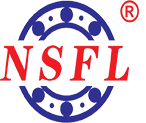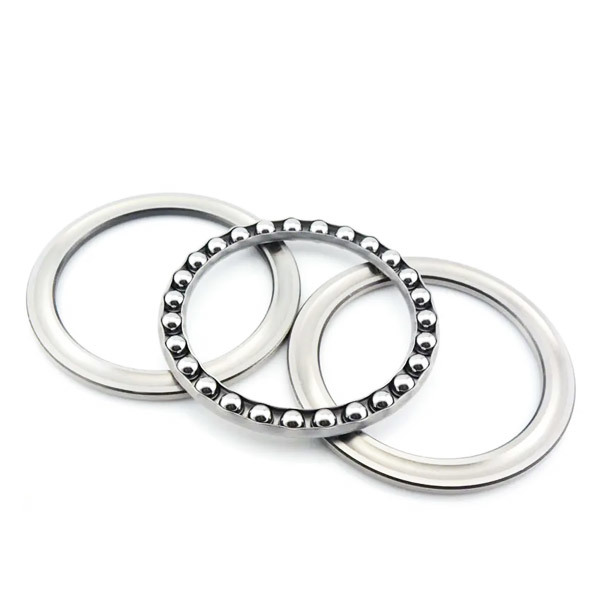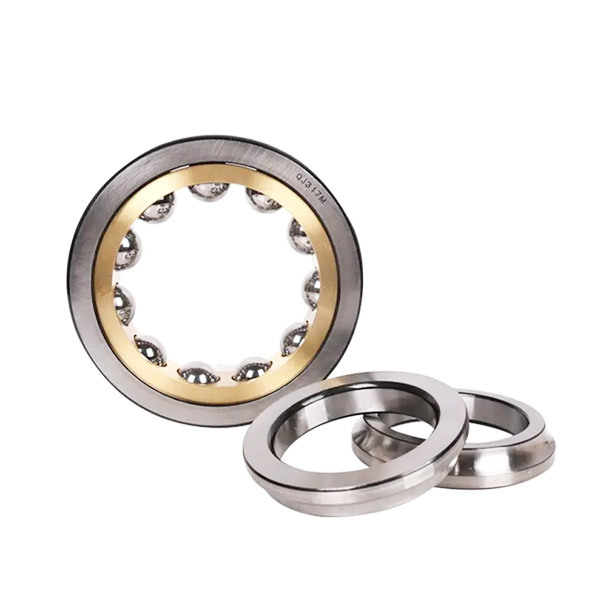01
2025
-
09
Top Applications of Linear Bearings in Modern Manufacturing
Top Applications of Linear Bearings in Modern Manufacturing Introduction to Linear Bearings Linear bearings are a crucial component in many modern manufacturing processes. They enable smooth, straight-line motion in machinery and equipment, ensuring high precision and efficiency. As industries continue to evolve, the applications of linear bearings have expanded significantly. In this article, w
Top Applications of Linear Bearings in Modern Manufacturing
Introduction to Linear Bearings
Linear bearings are a crucial component in many modern manufacturing processes. They enable smooth, straight-line motion in machinery and equipment, ensuring high precision and efficiency. As industries continue to evolve, the applications of linear bearings have expanded significantly. In this article, we will delve into the top applications of linear bearings in various sectors, highlighting their importance and benefits.
What Are Linear Bearings?
Linear bearings are designed to provide low-friction motion along a linear path. They typically consist of a bearing housing and a shaft, allowing for smooth movement while supporting heavy loads. The primary types of linear bearings include ball bearings, roller bearings, and sliding bearings. Each type offers unique advantages depending on the application.
How Linear Bearings Work
Linear bearings function by reducing friction between moving parts. The bearing's rolling elements (balls or rollers) allow for smoother movements compared to static surfaces. This capability minimizes wear and tear, leading to increased longevity and reliability of machinery.
Benefits of Using Linear Bearings in Manufacturing
The integration of linear bearings into manufacturing processes can yield numerous advantages, including:
- **Enhanced Precision**: Linear bearings allow for exact movements, essential in precision engineering.
- **Increased Efficiency**: By reducing friction, linear bearings facilitate faster operations, leading to higher production rates.
- **Extended Equipment Lifespan**: The reduced wear on machinery components contributes to longer service life.
- **Versatility**: Linear bearings can be adapted for various applications, making them suitable for diverse manufacturing environments.
Top Applications of Linear Bearings in Manufacturing
Let’s explore the most significant applications where linear bearings are making a substantial impact.
1. Automated Assembly Lines
In automated assembly lines, linear bearings play a vital role in ensuring smooth movement of robotic arms and conveyor systems. The precision provided by linear bearings allows for accurate placement and assembly of components, drastically reducing errors and improving overall productivity.
2. CNC Machines
Computer Numerical Control (CNC) machines rely heavily on linear bearings for maintaining precision during cutting and milling processes. The accurate linear motion provided by these bearings is essential for producing high-quality parts, making them indispensable in the machining industry.
3. 3D Printing
The 3D printing industry has seen significant advancements due to the use of linear bearings. These bearings allow for the smooth movement of print heads along their axes, facilitating the creation of complex geometries with precision. This application is crucial for industries ranging from aerospace to healthcare, where intricate designs are often required.
4. Packaging Equipment
Linear bearings are integral to packaging machinery, where smooth and consistent movement is necessary for bottling, labeling, and palletizing processes. Their ability to handle various loads and speeds makes them ideal for maintaining efficiency in high-speed packaging lines.
5. Robotics and Automation
Robotic systems utilize linear bearings to achieve fluid motion in joints and links. Whether in manufacturing, healthcare, or logistics, the precision of linear bearings allows robots to perform tasks with high accuracy, enhancing operational effectiveness.
Types of Linear Bearings and Their Specific Uses
Understanding the different types of linear bearings and their specific applications can help manufacturers select the appropriate option for their needs.
Ball Bearings
Ball linear bearings are often used in applications where low friction and high-speed movement are required, such as in CNC routers and milling machines. Their design allows for smooth operation under high loads.
Roller Bearings
Roller linear bearings are robust and can handle heavier loads than ball bearings. They are commonly found in packaging machinery and other heavy-duty applications, providing durability and reliability.
Sliding Bearings
Sliding linear bearings are ideal for applications requiring low-speed movement and less precision, such as in conveyor systems. They offer an economical solution for many manufacturing needs.
Innovations in Linear Bearing Technology
As technology progresses, linear bearing systems continue to evolve, leading to improved performance and new capabilities.
Smart Bearings
The advent of smart technology has introduced sensors within linear bearings, enabling real-time monitoring of performance metrics such as load, temperature, and wear. This innovation allows for predictive maintenance, minimizing downtime and enhancing reliability.
Materials and Coatings
Advancements in materials and coatings have resulted in linear bearings that can withstand harsher environments, such as those found in food processing or heavy machinery. These innovations improve resistance to corrosion, wear, and contamination.
Future Trends in Linear Bearing Applications
Looking ahead, several trends are emerging that may shape the future of linear bearings in manufacturing.
Increased Automation
As industries continue to automate processes, the demand for reliable linear bearing systems will rise. Manufacturers must adapt to these changes to remain competitive, focusing on innovations that enhance efficiency and precision.
Integration with IoT
The integration of linear bearings with the Internet of Things (IoT) will allow for more connected and intelligent manufacturing environments. This connectivity can lead to further optimization of production processes and improved decision-making based on real-time data.
FAQs About Linear Bearings
1. What is the primary function of linear bearings in manufacturing?
Linear bearings primarily provide smooth, accurate linear motion in various manufacturing applications, enhancing precision and efficiency.
2. How do I choose the right type of linear bearing for my application?
When selecting a linear bearing, consider factors such as load capacity, speed, and the operational environment. Consulting with a bearing specialist can also provide valuable insights.
3. What maintenance is required for linear bearings?
Regular maintenance includes lubrication, inspection for wear, and ensuring proper alignment. Following the manufacturer's guidelines will help prolong the bearing's lifespan.
4. Can linear bearings be used in high-temperature environments?
Yes, but selecting bearings made from materials that can withstand high temperatures and utilizing appropriate lubricants is essential.
5. How do smart linear bearings improve manufacturing processes?
Smart linear bearings equipped with sensors provide real-time performance data, allowing for predictive maintenance and minimizing downtime, ultimately enhancing operational efficiency.
Conclusion
Linear bearings are integral to modern manufacturing, offering unparalleled precision and efficiency across various applications. From automated assembly lines to CNC machines and beyond, their versatility ensures that industries can meet the demands of an ever-evolving market. As technology continues to advance, the innovations surrounding linear bearings promise to further enhance manufacturing processes, driving productivity and performance. By understanding the applications and benefits of linear bearings, manufacturers can make informed choices that support their operational goals, ensuring success in an increasingly competitive landscape.
10% DISCOUNT FOR NEW CUSTOMERS

WhatsApp:+8613211157555
Tel: +8613211157555
Address:Room 1106, 11th Floor, No. 23, Fengshan West Road, Jinbang Community, Daliang Street, Shunde District, Foshan City, Guangdong Province
Copyright 2025 Schaeffler (Guangdong) Transmission Technology Co., Ltd. SEO Business license




